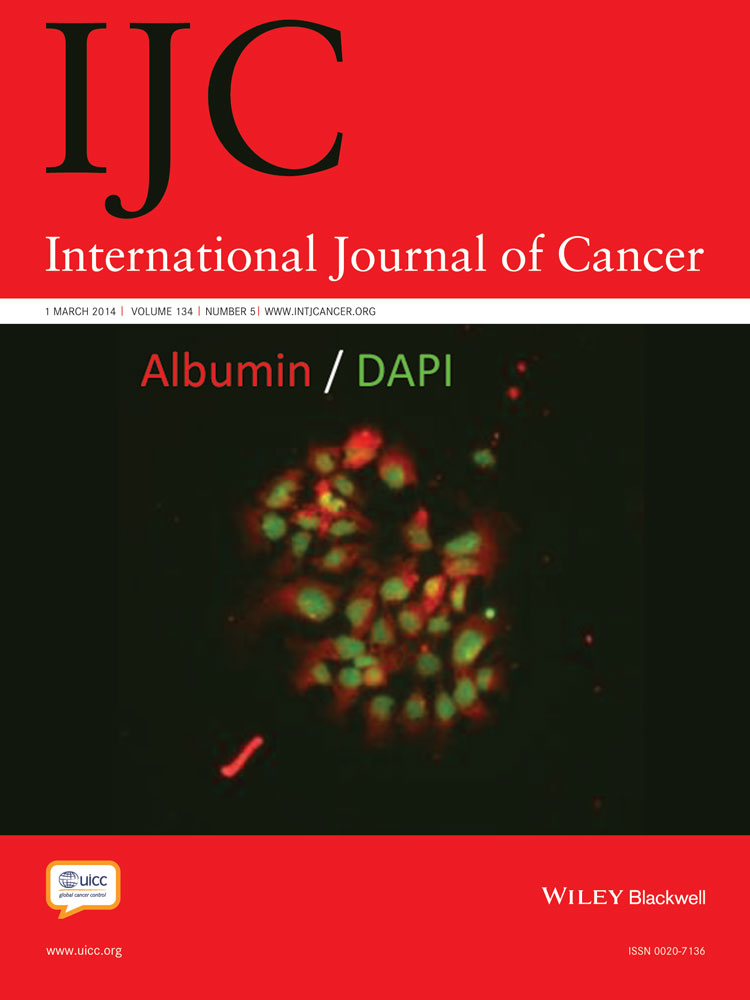Transarterial chemoembolization of unresectable systemic chemotherapy-refractory liver metastases from colorectal cancer: Long-term results over a 10-year period
Abstract
The aims of the study were to evaluate therapeutic efficacy and to determine the prognostic factors for treatment success in patients with liver metastases from colorectal cancer (CRC) treated with transarterial chemoembolization (TACE). A total of 564 patients (mean age, 60.3 years) with liver metastases of CRC were repeatedly treated with TACE. In total, 3,384 TACE procedures were performed (mean, six sessions per patient). The local chemotherapy protocol consisted of mitomycin C alone (43.1%), mitomycin C with gemcitabine (27.1%), mitomycin C with irinotecan (15.6%) or mitomycin C with irinotecan and cisplatin (15.6%). Embolization was performed with lipiodol and starch microspheres. Tumor response was evaluated using magnetic resonance imaging or computed tomography. The change in tumor size was calculated and the response was evaluated according to the RECIST-Criteria. Survival rates were calculated according to the Kaplan–Meier method. Prognostic factors for patient's survival were evaluated using log-rank test. Evaluation of local tumor control showed partial response in 16.7%, stable disease in 48.2% and progressive disease in 16.7%. The 1-year survival rate after chemoembolization was 62%, the 2-year survival rate was 28% and the 3-year survival rate was 7%. Median survival from the start of chemoembolization treatment was 14.3 months. The indication (p = 0.001) and initial tumor response (p = 0.015) were statistically significant factors for patient's survival. TACE is a minimally invasive therapy option for controlling local metastases and improving survival time in patients with hepatic metastases from CRC. TN stage, extrahepatic metastases, number of lesions, tumor location within the liver and choice of chemotherapy protocol of TACE are none significant factors for patient's survival.
Abstract
What's new?
About two-thirds of colorectal cancer patients develop life-threatening liver metastases, for which the only potentially curative therapy is resection. But only a small proportion of patients are candidates for resection, and those who undergo resection may suffer from intrahepatic recurrence. Here, transarterial chemoembolization (TACE), a minimally invasive procedure, was explored for colorectal cancer liver metastases. TACE was performed repeatedly for each of more than 560 patients. Following treatment, 48.2 percent of patients had stable disease, and the 1-year survival rate was 62 percent. Initial tumor response was a significant prognostic factor for patient survival after TACE.




